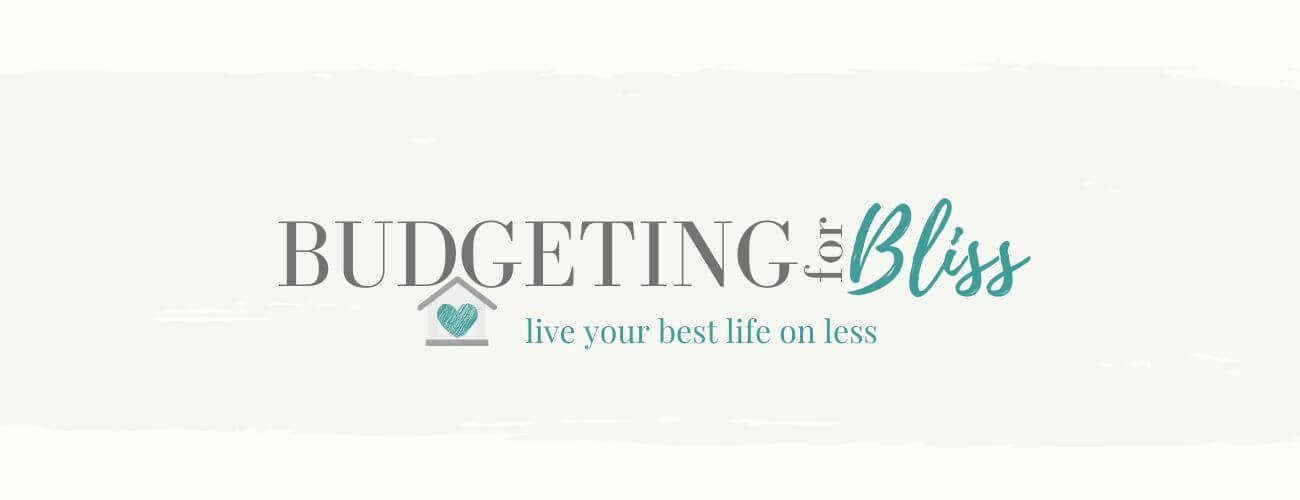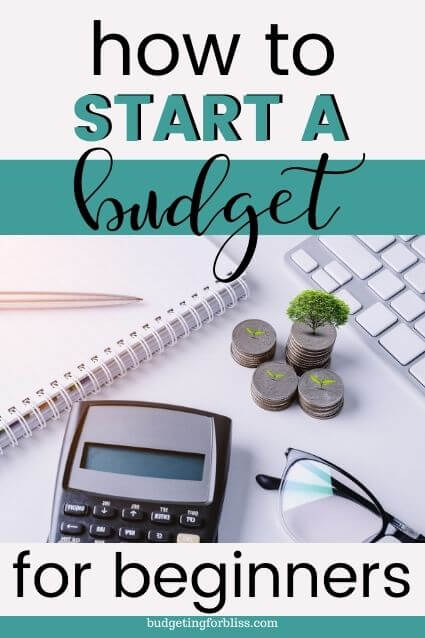Are you overwhelmed at the thought of setting up a budget? You realize the importance of one but have no idea where to start. This beginner’s guide to budgeting will walk you through what you need to do to get started in 5 easy steps.
This post may contain affiliate links. You can read my full disclosure here.
Budgeting can be intimidating
Let’s face it budgeting can be scary. It forces you to take a good hard look at your finances. Sometimes this can be really difficult to do when you know that you need to reduce your spending and don’t want to.
You may resist setting up a budget because you feel that it will be too constricting and you won’t have time to maintain it. But, in actuality, a budget is very easy to set up and is worth the effort. Once you see your savings account, retirement fund, and even your vacation fund start to grow you will wish you had started sooner.

Why should you have a budget?
1. You know where every dollar goes
One of the main reasons for having a budget is to help you make smarter choices about where your money is going month after month.
It’s important to have a budget no matter what your situation. But, especially if you are living on a lower income because you don’t have as much money coming in if an unexpected expense or an emergency arises.
2. A budget allows you to achieve your financial goals
Have you been wanting to take that dream vacation but you don’t know how to make it happen? A budget makes your money work for you so that you can achieve your goals faster.
It will allow you to pay down debt or finally build up that emergency fund that you have been putting off despite knowing the importance of having one.
Budgeting for Beginners in 5 easy steps
1. Gather Income
- Grab a pen and paper
- Write down the money that you get from all sources of income including any side hustle income such as babysitting, selling on eBay, etc.
If you are self-employed and have inconsistent income then the best thing you can do is use the lowest amount you receive. If you end up making more some months, it’s a bonus. Otherwise, you could be shorting yourself some months if you figure too high.
2. Gather Expenses
- Now, gather all your bills and other monthly expenses.
- Divide these into 2 categories, fixed and variable expenses.
Fixed Expenses
These are expenses that occur every month such as your mortgage, rent, utilities, insurance, and transportation costs.
Variable Expenses
This would include groceries, gas, entertainment, and personal needs.
3. Subtract Expenses from Income
- Now, that you have added up all your income and your expenses. It’s time to see what you have left over.
- Subtract your expenses from your income.
If you have money left over, great job! You are already on track and can move to step 4.
But, if you are like a lot of people, you have probably discovered that you have more money going out than coming in. So, this is when you need to go back to your list of variable expenses and find ways that you can cut back.
Some questions to ask yourself?
Look at your variable expenses
- How much are you spending on groceries?
- Is there anything else you can cut out of your budget to save money?
Recommended Posts
If you have gone over your expenses and are still struggling to find money left over then you may want to look into a side hustle to bring in some extra income that could be used toward your goal.

4. What are your goals?
So, you have determined how much extra is left at the end of each month. Now, you have to decide where that money is going to go. Do you want to pay down debt, start an emergency fund, or start a vacation fund?
The best thing to do to get control over your finances is to start paying down debt. This will actually help you in the long run because it frees up money that can be used for savings or a retirement fund.
Ultimately, whatever you decide is up to you. In order for a budget to work for you. You need to decide what is important enough that you are going to continue to maintain it month after month.
5. Create a plan
Once you have established your goals and have become aware of how much money is coming in and going out each month. Then you need to decide which budgeting system will work for you.
The one I use is the zero-based budget. I have always used this budget to stay on top of our finances because every single dollar that is brought in is accounted for.
Basically, this just means that when you subtract your expenses from your income that your balance should equal zero after you have designated all your money (fixed expenses, variable expenses, emergency fund, retirement fund, and savings.) It means that you have a plan for every dollar.
Although I love this budgeting system I realize it may not work for everyone because it forces you to stay on top of your budget every month.
The best advice I can give you is to find one that you like best. You will be most successful in your budgeting journey if you use a system that works for you!
Don’t forget to sign up for my FREE RESOURCE LIBRARY that’s packed full of printables to keep you organized on your budgeting journey.



